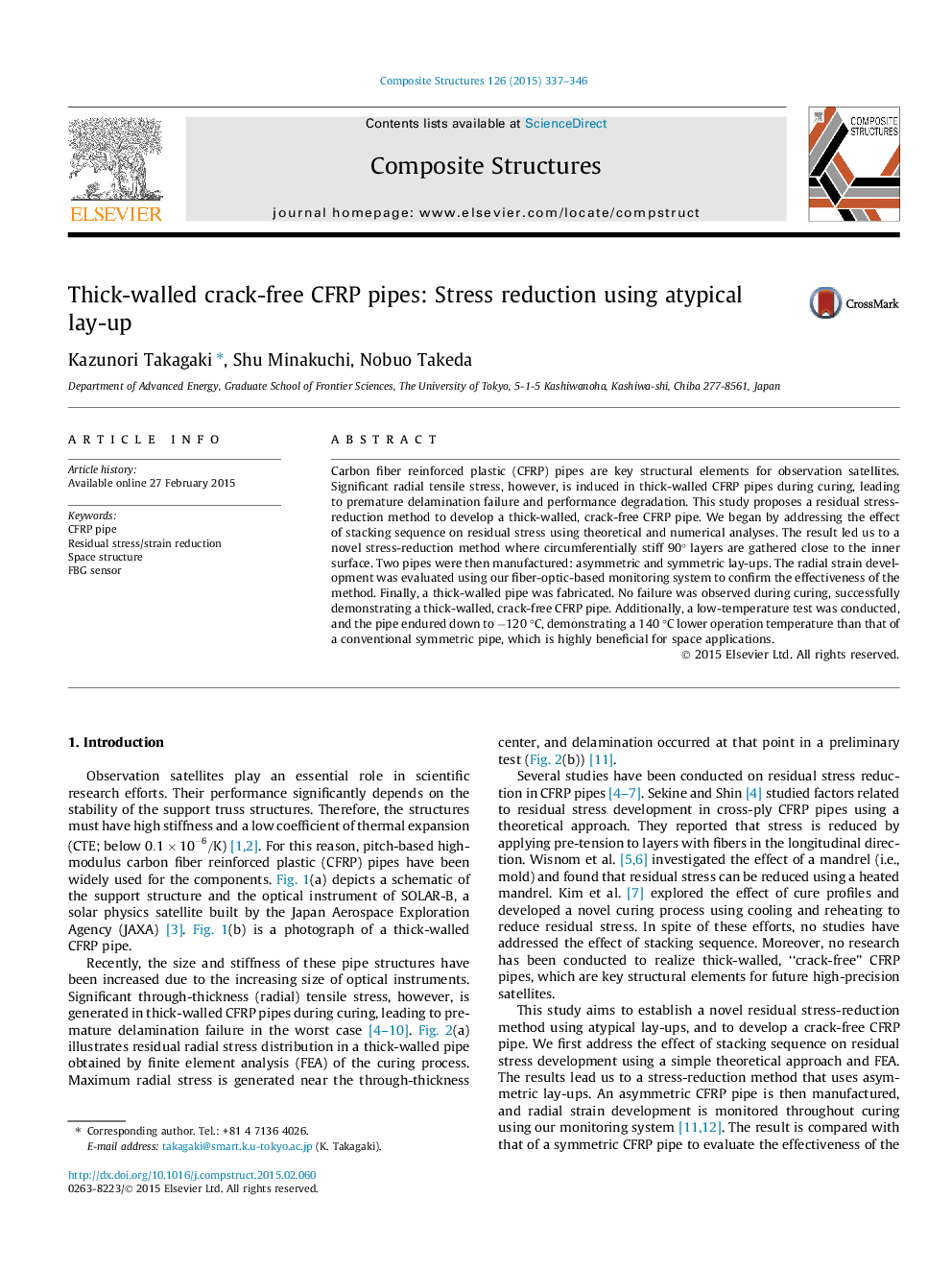| Article ID | Journal | Published Year | Pages | File Type |
|---|---|---|---|---|
| 251371 | Composite Structures | 2015 | 10 Pages |
Carbon fiber reinforced plastic (CFRP) pipes are key structural elements for observation satellites. Significant radial tensile stress, however, is induced in thick-walled CFRP pipes during curing, leading to premature delamination failure and performance degradation. This study proposes a residual stress-reduction method to develop a thick-walled, crack-free CFRP pipe. We began by addressing the effect of stacking sequence on residual stress using theoretical and numerical analyses. The result led us to a novel stress-reduction method where circumferentially stiff 90° layers are gathered close to the inner surface. Two pipes were then manufactured: asymmetric and symmetric lay-ups. The radial strain development was evaluated using our fiber-optic-based monitoring system to confirm the effectiveness of the method. Finally, a thick-walled pipe was fabricated. No failure was observed during curing, successfully demonstrating a thick-walled, crack-free CFRP pipe. Additionally, a low-temperature test was conducted, and the pipe endured down to −120 °C, demonstrating a 140 °C lower operation temperature than that of a conventional symmetric pipe, which is highly beneficial for space applications.
